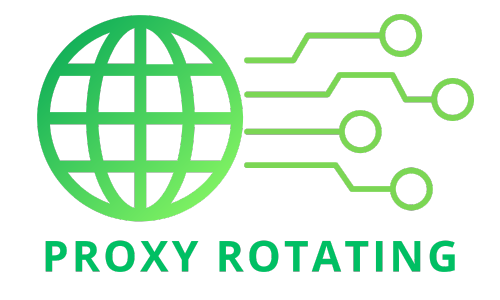A VPN (Virtual Private Network) for iPhone is a software application that provides a secure and private internet connection from your device. By creating an encrypted tunnel for your data, a VPN ensures that your online activities are hidden from eavesdroppers, hackers, and even your Internet Service Provider (ISP). This is particularly useful when using public wi-fi networks, which are often unsecured and pose a risk to data privacy. In the article below, Proxy Rotating will provide you with the top 5 VPN for iPhones and some tips to choose the right VPN for your iPhone.
What are the benefits of using VPNs on iPhone?
Using VPNs on an iPhone can offer several significant benefits, particularly in security, privacy, and content access. Here are three key advantages:
- Enhanced security features: VPNs encrypt your internet traffic, which protects your online activities from being monitored or intercepted by third parties. This is especially important when accessing sensitive information like bank accounts or private communications. The encryption provided by a VPN ensures that even if someone were to intercept your data, it would be challenging to decipher.
- Access to Geo-restricted content: A VPN allows you to change your IP address to one in a different geographical location. This capability enables you to bypass regional restrictions and censorship, giving you access to a broader array of content worldwide, including streaming services like Netflix, Hulu, and BBC iPlayer, which have region-specific libraries.
- Protection on public Wi-Fi networks: Public Wi-Fi networks, such as coffee shops, airports, and hotels, are notoriously insecure and can be hotspots for cyber threats like man-in-the-middle attacks. A VPN secures your internet connection on these networks, protecting you from potential cyber threats and ensuring your personal information remains private.
Overall, using a VPN on your iPhone enhances your online security and privacy, expands access to global content, and safeguards your data on insecure networks.
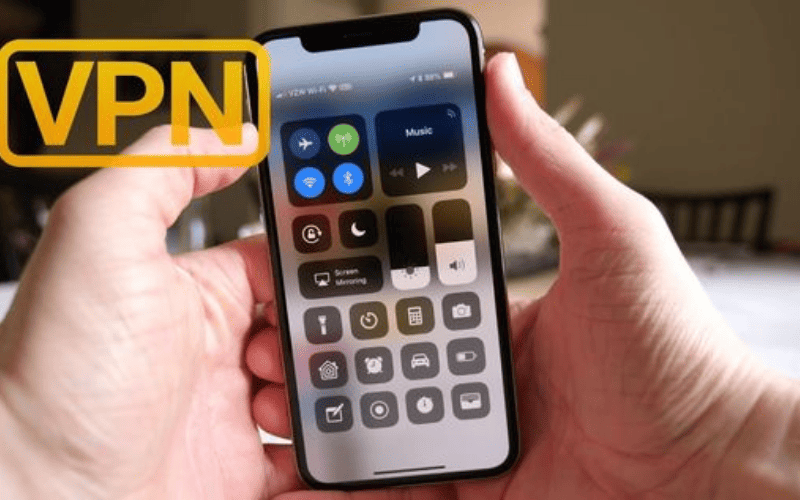
Learn about the top 5 VPNs for iPhone in 2024
ExpressVPN – Top performer for iPhone users
ExpressVPN is widely regarded as one of the top VPN services for iPhone users, offering a blend of security, speed, and ease of use. It’s consistently ranked in the top 5 VPNs for iPhone due to its exceptional performance and user-friendly features. Here are some of the pros and cons of using ExpressVPN on your iPhone:
Pros:
- High-Speed servers: ExpressVPN is known for its fast server speeds, making it ideal for streaming, downloading, and browsing without significant lag.
- Strong security features: Offers robust encryption standards (AES-256 bit), a no-logs policy, and trusted server technology, ensuring your data remains secure and private.
- Vast server network: With servers in 94 countries, users have a wide range of geographic locations, enabling access to geo-restricted content worldwide.
- User-friendly interface: The app is easy to navigate on iPhone, making it simple for users to connect to a VPN server with just a few taps.
- 24/7 customer support: ExpressVPN provides excellent customer service, including 24/7 live chat support, to assist with any issues or questions.
- Kill switch feature: Known as “Network Lock” in ExpressVPN, this feature secures your data by blocking all internet traffic if the VPN connection drops unexpectedly.
Cons:
- Cost: ExpressVPN is pricier than other VPN services, which might deter users looking for a more budget-friendly option.
- Limited simultaneous connections: ExpressVPN allows up to 5 concurrent connections per subscription, which may be less than some other providers offer.
- Simplified options for advanced users: While the app’s simplicity is great for beginners, users with advanced VPN knowledge may find the settings and customization options somewhat limited.
Overall, ExpressVPN for iPhone offers a powerful combination of speed, security, and simplicity, making it a strong choice for iPhone users looking to enhance their online privacy and access content from around the globe. However, the higher price point and limited simultaneous connections might be drawbacks for some users.
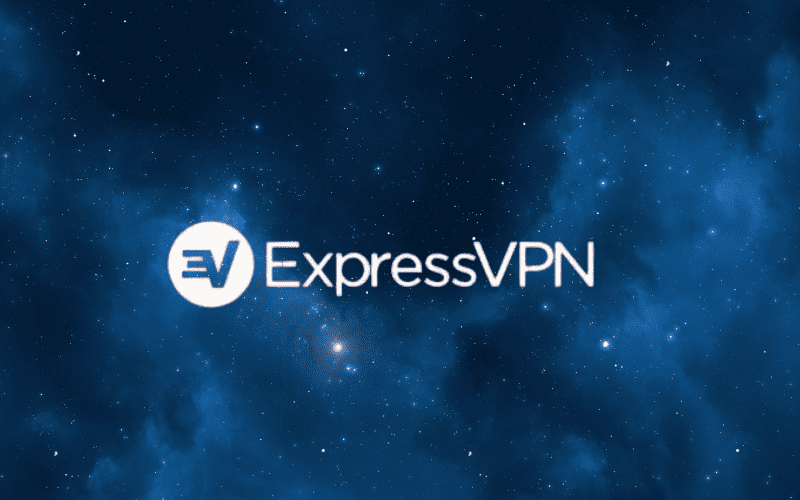
NordVPN
NordVPN is another leading VPN service celebrated for its robust security features and vast server network. Here’s an overview of the advantages and disadvantages of using NordVPN on an iPhone, highlighting its status among the top 5 VPNs for iPhone users:
Pros:
- Robust security: NordVPN offers AES-256-bit encryption, double VPN, and Onion over VPN features for enhanced security. It also has a strict no-logs policy, ensuring your data and browsing activities are not recorded.
- Extensive server network: With more than 5,400 servers in 59 countries, NordVPN provides a wide selection of servers worldwide, making it easy to bypass geo-restrictions and access content from almost anywhere.
- Fast speeds: NordVPN’s NordLynx protocol provides consistently high speeds, making it suitable for streaming, gaming, and downloading large files.
- User-friendly interface: The NordVPN app for iPhone is intuitive and easy to navigate, allowing users to connect to the best server with just one tap.
- Automatic kill switch: This feature stops all internet traffic if the VPN connection unexpectedly drops, protecting your data from being exposed.
- Dedicated IP Option: This option offers the choice of a dedicated IP address, which is advantageous for specific online tasks needing a stable IP.
Cons:
- Variable server performance: While NordVPN generally offers fast speeds, some users may experience variable performance on specific servers, requiring them to switch servers for optimal speed.
- Some features not available on iOS: Certain features on NordVPN’s desktop application, such as the double VPN or Onion over VPN, may have limited availability on the iPhone app.
- Price: While NordVPN offers good value, especially for more extended subscription plans, its pricing can still be a consideration for users looking for the most cost-effective solutions.
NordVPN for iPhone stands out for its strong security measures, enormous server network, and user-friendly interface. However, potential users should be aware of the variability in server speeds and the availability of certain features on iOS. It’s a solid choice for iPhone users seeking privacy and freedom online.
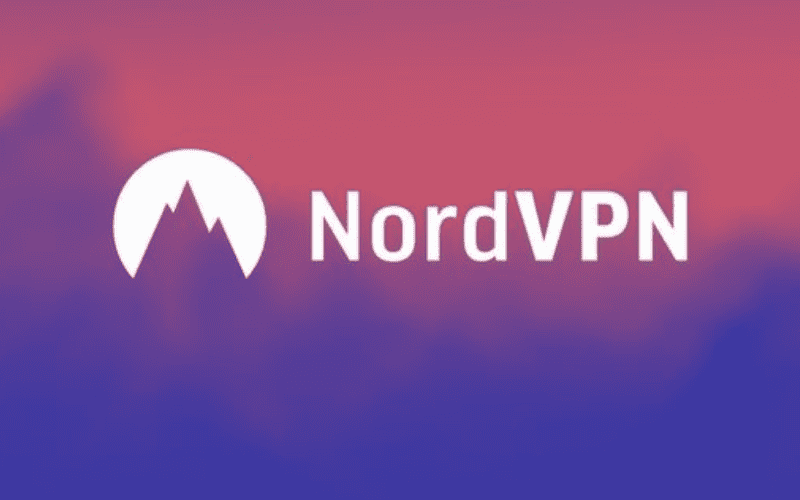
CyberGhost
CyberGhost, renowned for its user-friendly interface and strong emphasis on privacy and security, stands out as a popular VPN service. It’s considered one of the top 5 VPNs for iPhone, thanks to its comprehensive features tailored for iOS users. When evaluating CyberGhost for your iPhone, here are some of the critical advantages and potential drawbacks to consider:
Pros:
- Extensive server network: CyberGhost offers over 7,000 servers in 90 countries, providing plenty of options for bypassing geo-restrictions and accessing global content.
- Strong privacy measures: It has a strict no-logs policy, ensuring your browsing activities are not tracked or stored. Additionally, CyberGhost uses AES-256-bit encryption to secure your data.
- Dedicated streaming servers: CyberGhost provides servers optimized for streaming, making it easy to access streaming services like Netflix, Hulu, and others at reasonable speeds and with reliable connections.
- User-friendly app: The CyberGhost app for iPhone is straightforward to use. It allows users to connect to a VPN server with just a few taps and offers customized profiles for different usage scenarios.
- Automatic kill switch: Although less standard in iOS apps, CyberGhost includes a kill switch feature that protects your data if the VPN connection drops unexpectedly.
- 7 Simultaneous Connections: With a single subscription, CyberGhost allows you to connect up to 7 devices simultaneously, which is higher than what many other VPN providers offer.
Cons:
- Speed variability: While CyberGhost generally provides good speeds, some users may experience variability depending on the server and time of day. Speeds might be slower than those offered by some top competitors.
- Limited advanced features on iOS: The iOS app has a more simplified feature set than CyberGhost’s offerings on other platforms. For instance, advanced users might be unable to fine-tune certain settings or use specific protocols.
- Price point: Although CyberGhost offers competitive pricing, especially for more extended subscription plans, its pricing structure might still be a consideration for those seeking the most budget-friendly options.
CyberGhost for iPhone offers a balance of ease of use, privacy, and access to a broad range of content. It’s particularly appealing to users who prioritize streaming and want a simple, effective VPN solution. However, those looking for the fastest possible speeds or more granular control over their VPN settings may wish to explore further.
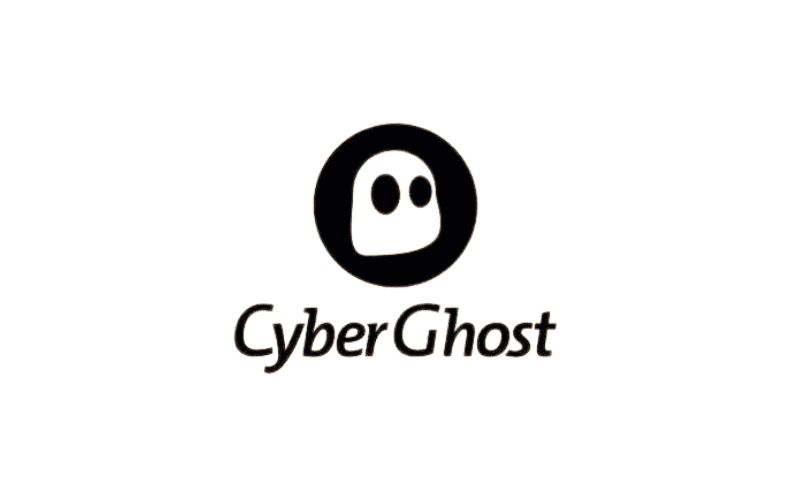
Surf Shark – Features like Onion over VPN
Surfshark has quickly become a favorite among iPhone users due to its competitive pricing, extensive features, and intense focus on privacy and security. Here’s a breakdown of the pros and cons of using Surfshark VPN on your iPhone:
Pros:
- Unlimited simultaneous connections: Unlike many other VPN services, Surfshark allows unlimited devices on a single subscription, making it an excellent choice for families or individuals with multiple devices.
- Competitive pricing: Surfshark offers some of the most affordable plans in the VPN market, especially for its long-term subscriptions, providing excellent value for its features.
- Strong security and privacy features: Surfshark protects your data with AES-256-bit encryption, a no-logs policy, and a kill switch. It also offers features like CleanWeb to block ads, trackers, and malware.
- Global server network: With servers in over 65 countries, Surfshark provides plenty of options for bypassing geo-restrictions and accessing content worldwide.
- Whitelister feature: Surfshark’s split tunneling feature, called Whitelister, allows you to select which apps or websites bypass the VPN connection, offering flexibility in how you use your internet.
- Easy-to-Use interface: The Surfshark app for iPhone is intuitive and straightforward, making it easy for users of all levels to navigate and use.
Cons:
- Variable speeds: While Surfshark generally offers good speeds, some users may experience inconsistency or slower speeds on specific servers or during peak times.
- Limited advanced Features on iOS: Due to iOS restrictions, some advanced features available on Surfshark’s desktop app may need to be present or have limited functionality on the iPhone app.
- Younger service: Being one of the newer players in the VPN market, Surfshark is still establishing its reputation and building trust within the community, which may be a consideration for some users.
Surfshark stands out for its unlimited connections, competitive pricing, and strong focus on privacy, making it an appealing choice for iPhone users. Its user-friendly interface and robust security features provide a solid VPN experience. However, users looking for the fastest speeds or specific advanced features might need to consider these aspects when choosing Surfshark.
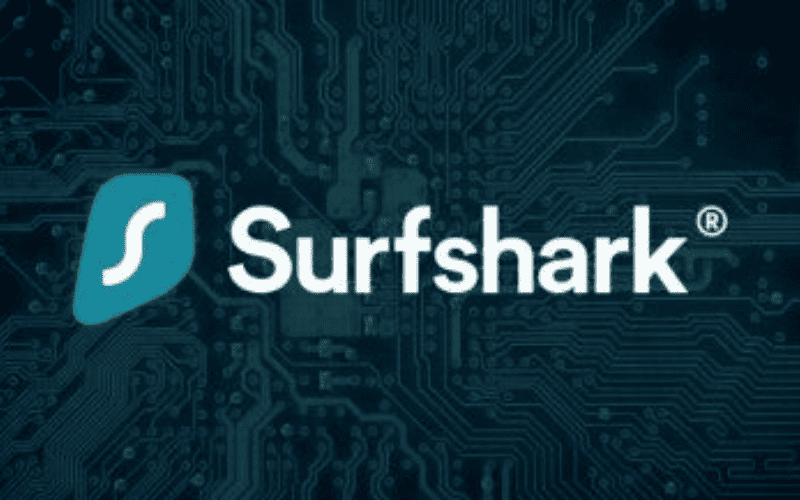
ProtonVPN – A Comprehensive iOS App
ProtonVPN stands out for its strong focus on security and privacy, a legacy of its founding by scientists at CERN. It ranks as a top choice among the best VPNs for iPhone users who value these features. Here are the advantages and disadvantages of using ProtonVPN on your iPhone:
Pros:
- Strong focus on privacy and security: ProtonVPN has a strict no-logs policy and is based in Switzerland, a country known for its strong privacy laws. It uses AES-256 encryption, provides Secure Core servers to route your traffic through privacy-friendly countries, and offers Tor over VPN services.
- Free version: ProtonVPN offers a fully functional free version with no data limits, making it unique among VPN services. This allows users to enjoy a high level of privacy and security without any cost.
- Open source and independently audited: ProtonVPN’s transparency is notable. Its apps are open source and have been independently audited, which speaks to its commitment to security and privacy.
- User-friendly interface: The ProtonVPN app for iPhone is designed with simplicity in mind, making it easy for users to connect to a VPN server, switch servers, and adjust settings.
- NetShield ad-blocker: Available on paid plans, NetShield blocks ads, trackers, and malware at the DNS level, enhancing your browsing experience and further protecting your privacy.
Cons:
- Speed and performance: Due to server load, users on the free plan may experience slower speeds, especially during peak times. Even on paid plans, speeds can be variable compared to other VPN providers.
- Limited servers on the free plan: The free version of ProtonVPN provides access to servers in only three countries, which can be limiting for users looking to bypass geo-restrictions or seeking optimal speed by connecting to a nearby server.
- Limited features on iOS: Some features available in ProtonVPN’s desktop applications, such as Secure Core and Tor over VPN, may need more functionality or may not be available in the iOS app.
- Pricier than some competitors: While ProtonVPN’s free version offers a significant advantage, its paid plans are more expensive than those of other VPN services offering similar features.
ProtonVPN for iPhone stands out for its uncompromising privacy and security, making it a strong choice for users who prioritize these aspects. Its open-source nature and the availability of a free version are notable advantages. However, users looking for the highest speeds or access to a wide range of global servers may need to consider the limitations, especially on the free plan.
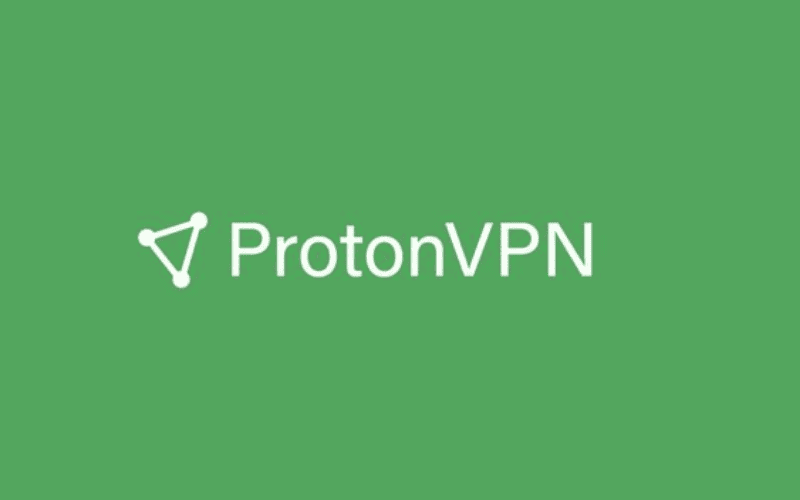
How to choose the best VPN for iPhone.
Choosing the right VPN for your iPhone involves considering several factors to ensure that your online activities are secure, your privacy is protected, and you can access the content you want. Here are some key considerations to help you select the best VPN for your iPhone:
Security features
To protect your data, look for a VPN with strong encryption standards (AES-256 is considered the gold standard).
Ensure the VPN offers a no-logs policy, meaning it doesn’t store any data about your online activities.
Additional security features, such as a kill switch that disconnects you from the internet if your VPN connection drops, are also valuable.
Privacy policies
Investigate the VPN provider’s privacy policy to understand how your data is handled and protected.
Consider the VPN’s jurisdiction and whether it falls under the Five Eyes, Nine Eyes, or Fourteen Eyes surveillance alliances, which could affect legal requirements for data sharing.
Speed and performance
A VPN can impact your internet speed, so look for one that offers fast server speeds to minimize lag or buffering. This is especially important for streaming and gaming.
Test the VPN’s performance during a free trial or within the refund period to ensure it meets your needs.
Server network
A broad server network means more options for geo-spoofing your location, which is crucial for bypassing geo-restrictions and accessing global content.
Check for servers in specific countries or regions that interest you.
Ease of use
The VPN app should be user-friendly and fully compatible with iOS, featuring intuitive interfaces and straightforward setup procedures.
Consider whether the VPN lets you switch between servers easily and offers customizable settings.
Pricing and value
Compare subscription plans, prices, and features. More expensive sometimes means better.
Look for a VPN that offers a good balance between price and the features you need.
Check for a free trial or money-back guarantee to test the VPN before committing.
Customer support
Reliable customer support is crucial, especially if you’re new to VPNs. Look for services offering 24/7 support through live chat or email.
Read reviews or test the support responsiveness to gauge the quality of service.
Additional features
Some VPNs offer extra features like ad blocking, malware protection, or dedicated IPs. Consider whether these features are important to you and worth any additional cost.
Reviews and recommendations
Research and read reviews from reputable sources to gather insights on the VPN’s performance, reliability, and customer service.
Consider recommendations from users with similar needs and preferences.
Evaluating these factors will help you choose a VPN that best fits your needs, offering the right balance of security, privacy, speed, and usability on your iPhone.
How do VPN providers ensure a reliable connection on iPhones?
VPN providers utilize several strategies to ensure iPhone users’ reliable and stable connection. These include the use of advanced VPN protocols and the optimization of their server networks. Here’s how these elements contribute to the reliability of VPN services:
Utilization of advanced VPN protocols
- IKEv2/IPSec: This protocol is known for its stability and speed, especially in mobile environments where frequent network changes (like switching from Wi-Fi to cellular data). It quickly re-establishes a lost connection, making it ideal for iPhones that often switch between networks.
- OpenVPN: Widely regarded for its security and versatility, OpenVPN is another popular choice. Although not natively supported on iOS, many VPN providers offer it through their apps with additional configuration, providing a good balance between speed and security.
- WireGuard®: This newer protocol offers state-of-the-art cryptography and is designed to be faster and simpler than older protocols. It is particularly effective on mobile devices due to its lean code base that requires fewer resources, thus providing a quick and reliable connection.
Optimized server network for consistent performance
- Strategic server placement: VPN providers typically place servers in key locations worldwide to ensure users can always find a server nearby, which helps reduce latency and increase speed.
- Server load management: Good VPN providers actively manage their server load to prevent any single server from becoming too congested. This involves balancing the traffic across their network and adding capacity where needed.
- Regular server updates and maintenance: Regularly updating and maintaining servers is crucial for performance. VPN providers conduct these activities to ensure hardware is up to date and running efficiently, reducing the likelihood of downtimes or slowdowns.
- Content delivery networks (CDNs): Some VPN providers use CDNs to cache content in various locations. This approach speeds up content delivery and reduces load times, making the VPN connection feel more responsive.
- Quality of service (QoS) practices: VPN providers can enhance performance during peak usage times by prioritizing certain types of traffic. For example, streaming or video call traffic might be prioritized over general browsing to ensure a smoother experience.
By focusing on these technical strategies, VPN providers can offer a highly reliable service that maintains strong performance across various network conditions and usage scenarios, particularly on mobile devices like iPhones. This ensures users have a seamless and secure online experience regardless of their location or the type of content they are accessing.
How to use a VPN for iPhone
Setting up a VPN on your iPhone can enhance your online privacy and security and allow you to access geo-restricted content. Here’s a step-by-step guide to help you install and configure a VPN, along with recommendations for user-friendly VPN apps and tips for troubleshooting common connection issues.
Step-by-Step guide to setting up a VPN on iPhone
- Choose a VPN service: Select a reputable VPN provider. NordVPN, ExpressVPN, and Surfshark are famous for their robust security features, ease of use, and excellent customer support.
- Download the app: Go to the App Store, search for your chosen VPN service, and download the app.
- Install the app: Open the downloaded app and follow the installation instructions. You may need to enter your Apple ID password or use Touch/Face ID if prompted.
- Sign in: Once the app is installed, open it and sign in with the account you created when you purchased your VPN subscription.
- Configure Settings: You can configure the VPN according to your preferences. This might include selecting a protocol, deciding whether to start the VPN automatically, connecting to the best server automatically, or selecting a specific country.
- Connect to a VPN server: Tap the connect button to enable the VPN. Most apps will display a status indicator to show that you are connected.
- Verify the connection: Use a browser to visit a site like ipleak.net to verify that your IP address and DNS information reflect the VPN’s server location, indicating that your connection is secure.
Recommended VPN Apps for Easy Setup
- NordVPN: Known for its robust security features, vast server network, and excellent speeds.
- ExpressVPN: Offers robust security, very intuitive apps, and great customer service.
- Surfshark: Affordable and user-friendly, with the benefit of allowing unlimited simultaneous connections.
Tips for Troubleshooting VPN Connection Issues
- Check Internet Connection: Ensure your device has a stable internet connection without the VPN enabled.
- Restart the VPN App: Sometimes, closing and reopening the app can resolve connection issues.
- Switch Servers: If you can’t connect, select a different server. Some servers may be temporarily down or overloaded.
- Change Protocols: Some VPNs allow you to choose between protocols (like IKEv2, OpenVPN, and WireGuard). Switching protocols can often improve connectivity.
- Reinstall the VPN App: Uninstalling and then reinstalling the VPN app can resolve persistent issues, especially if the installation is corrupted.
- Contact Support: If you still have issues, contact VPN customer support. They can provide guidance specific to their software and services.
- Update iOS and VPN App: To avoid compatibility issues, ensure that both your iPhone’s operating system and your VPN app are up-to-date.
By following these steps, you can successfully set up and troubleshoot a VPN on your iPhone, enhancing your online security and access to global content.
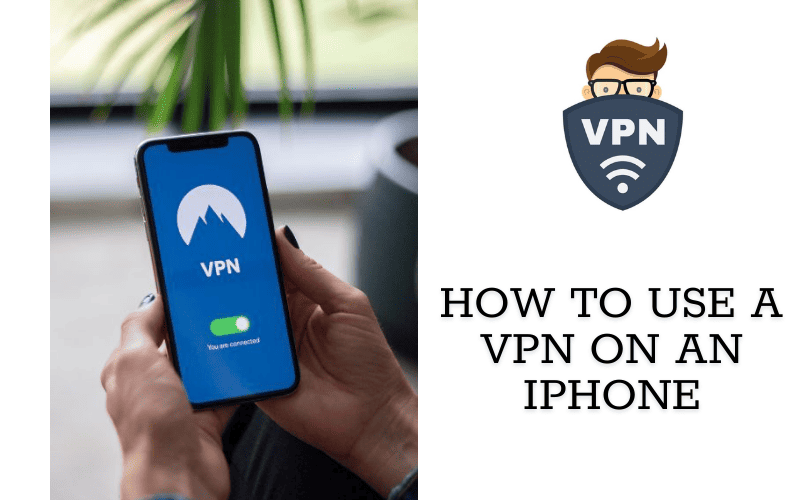
How we test iPhone VPNs
Testing iPhone VPNs involves assessing various aspects of the VPN service to ensure it meets performance standards, security, usability, and compatibility with iOS devices. Here’s a comprehensive approach to testing iPhone VPNs:
Installation and setup: Check how easily the VPN app can be installed and set up on an iPhone. This includes checking its availability in the App Store, the simplicity of the installation process, and whether it offers easy-to-follow setup instructions.
User interface and experience: Evaluate the user interface for intuitiveness and ease of use. Is the app straightforward for users to navigate? Does it provide quick access to essential features like server selection, connection status, and settings?
Connection stability and reliability: Test the VPN connections for stability over various networks (Wi-Fi, 4G, and 5G). Monitor how often the connection drops and how quickly it reconnects.
Speed and performance: Measure the VPN speeds across different servers and compare them to the internet speed without a VPN. This can involve downloading files, streaming video, and browsing websites to assess the VPN’s impact on internet speed.
Security and privacy features: Examine the security features offered by the VPN, such as:
- Encryption standards: Ensure it uses robust encryption (e.g., AES-256).
- Protocols: Check which protocols are supported (e.g., OpenVPN, WireGuard).
- No-logs policy: Verify the VPN’s claims about not keeping logs of user activity.
- Kill switch: Test if the VPN has a kill switch that effectively blocks internet access if the VPN connection fails.
IP and DNS leak tests: Conduct tests to check for IP, DNS, and WebRTC leaks while the VPN is active. This ensures that the user’s IP address and DNS requests are not exposed.
Server locations and diversity: Assess the number and diversity of server locations. More servers and locations mean better speeds and access to geo-restricted content.
Geo-restriction bypassing: Test the VPN’s ability to access content restricted to specific regions, like streaming services (Netflix, Hulu, BBC iPlayer), and see how effectively it can bypass such restrictions.
Customer support: Evaluate the responsiveness and helpfulness of the VPN service’s customer support through different channels, such as email, live chat, and phone.
Compatibility with iOS versions and devices: To ensure broad usability, ensure the VPN app is compatible with different iOS versions and a range of iPhone models.
Battery consumption: Monitor how much battery the VPN app uses during operation. Some VPN apps are battery-intensive, mainly if they use more secure but demanding encryption protocols.
Pricing and value for money: Compare the subscription costs with the features offered. Consider if the VPN provides good value for the price in terms of features, server availability, and performance.
By thoroughly testing these aspects, you can effectively evaluate the overall quality, performance, and suitability of a VPN for iPhone users.

FAQs about the top 5 VPNs for iPhone
Here are some frequently asked questions (FAQs) about using a VPN on iPhone and their answers to help you better understand the service and how it can benefit you.
What is the safest VPN for iPhone?
NordVPN and ExpressVPN are widely regarded as some of the safest VPNs for iPhone. They offer robust encryption, no-logs policies, and reliable security features like kill switches and IP leak protection.
Can a free VPN for iPhone be trusted?
Free VPNs for iPhone are generally less trustworthy than paid services. They often need stronger security, log user data, and have fewer resources to invest in privacy protections. Some may even sell user data to third parties to generate revenue.
Are iPhone VPNs fully featured?
Most premium VPNs offer fully-featured apps for iPhone that include strong encryption, a wide range of servers, no-logs policies, and extra features like ad-blocking. However, some features available on desktop versions may be absent or limited on mobile due to iOS restrictions.
Do I need a VPN on my iPhone?
Using a VPN on your iPhone can enhance security, especially on public Wi-Fi networks. It can also help maintain privacy from ISPs and third parties and allow access to geo-restricted content. Whether you need one depends on your privacy concerns and internet usage habits.
Do iPhone VPNs leak traffic?
Premium iPhone VPNs generally do not leak traffic. They typically have built-in leak protection for DNS, IPv6, and WebRTC to ensure all internet traffic remains encrypted and rerouted through the VPN server. However, it’s always wise to perform regular leak tests to confirm.
Is it legal to use VPNs on iPhones?
Yes, it is legal to use VPNs on iPhones in most countries. However, some countries, such as China, Russia, and Iran, have restrictive laws that regulate or ban the use of VPNs. It’s essential to check the specific laws in your country or any country you visit.
Understanding these FAQs can help you navigate the use of a VPN on your iPhone, ensuring you get the most out of your VPN service while maintaining privacy and security online.
Given the benefits, using a VPN on your iPhone is a smart choice for those concerned about online privacy and security and those looking to enjoy a more open and unrestricted internet experience. The above article is about the top 5 VPNs for iPhones. Proxy Rotating hopes that after reading this article, you can find a suitable VPN for your iPhone. To learn more helpful knowledge, please visit our website, https://proxyrotating.com/
>>> See more:
Vpn route based vs policy based
With vpn connected no internet
2 vpn verbindungen gleichzeitig
